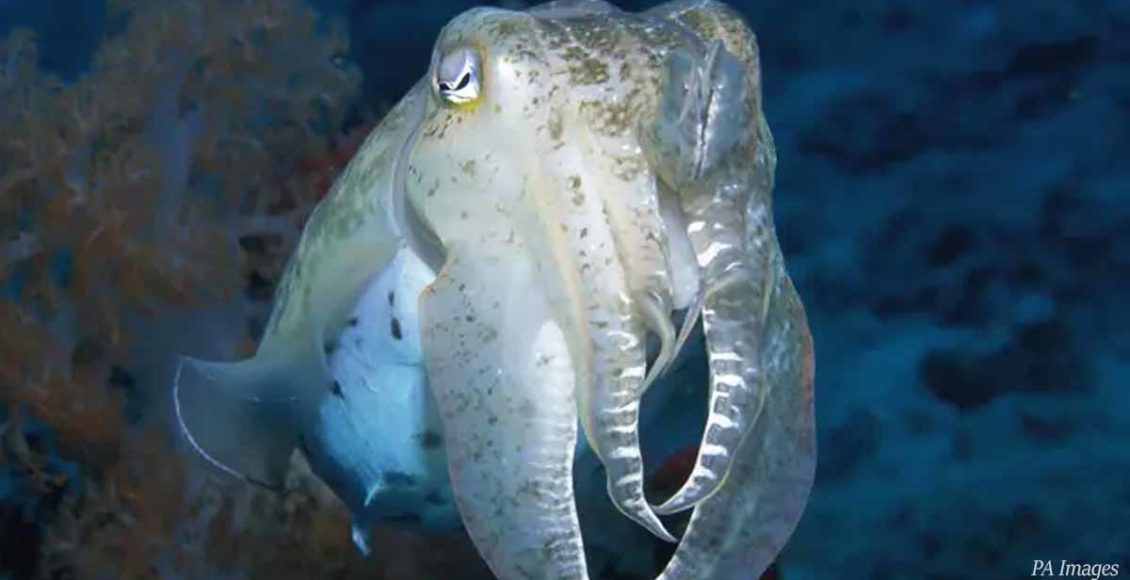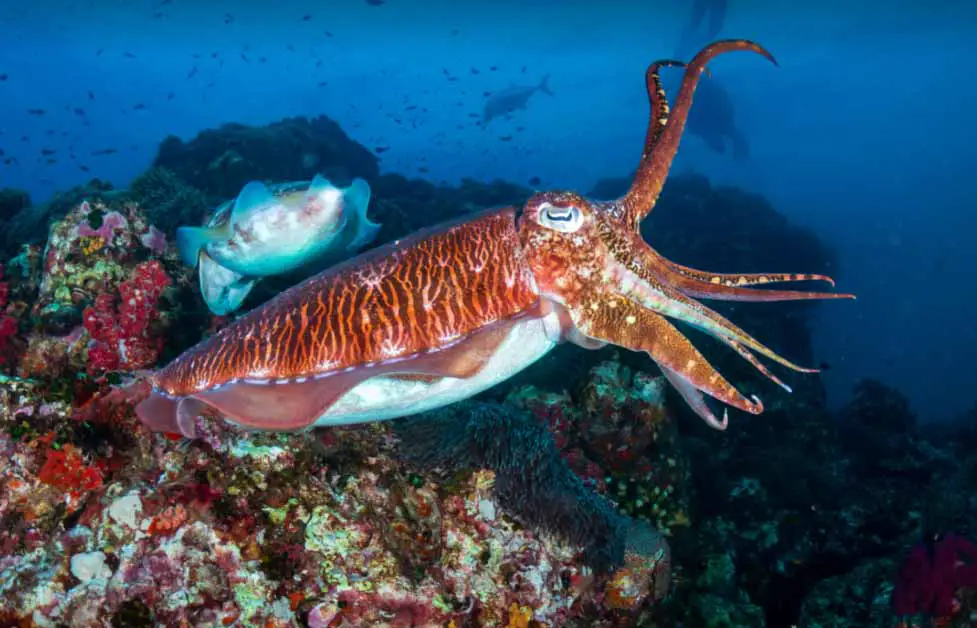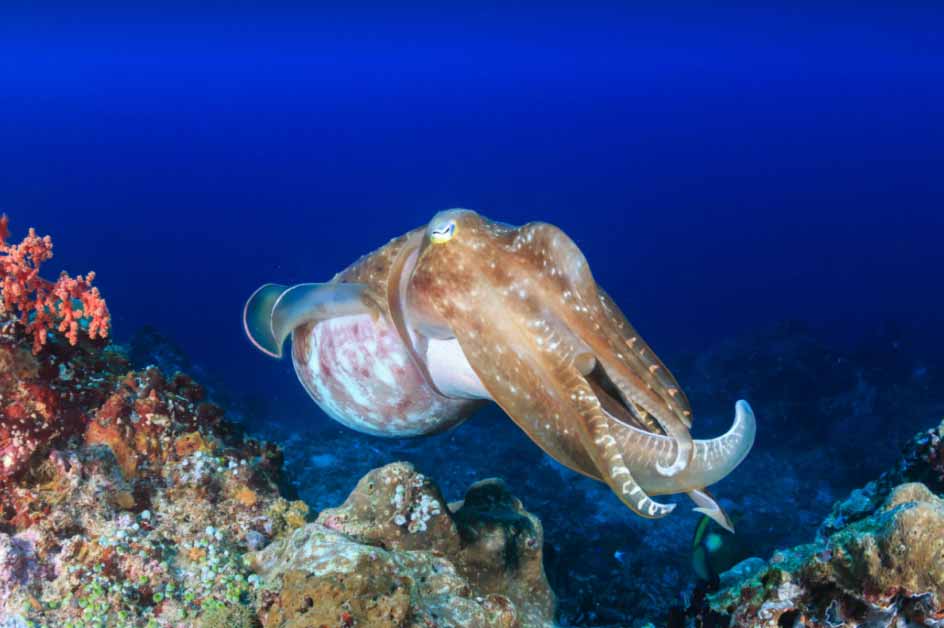Cuttlefish proved to have the self-control to pass the Marshmallow Test designed for children

A cephalopod showed remarkable cognitive abilities after passing the Мarshmallow Тest designed for children.
- Cuttlefish showed extraordinary intelligence by passing the Stanford Мarshmallow Еxperiment.
- Cambridge scientists revealed that the cephalopod can learn, adapt, and practice self-control.
- The species’ intelligence is “comparable to what we see in large-brained vertebrates such as chimpanzees, crows, and parrots.”
Apparently, cuttlefish are much more intelligent than we think. They were recently put to a brand new version of the Мarshmallow Тest, and they have passed it remarkably.

As Science Alert explains, during the Мarshmallow Тest, also known as the Stanford Мarshmallow Еxperiment, a child is placed in a room with a marshmallow. They are then told that if they can resist eating the candy for 15 minutes, they will get a second one and be allowed to eat both.
The test represents a form of delaying gratification. It reveals cognitive abilities, including future planning and self-control.
Since the experiment is quite simple, it can easily be altered for animals. Primates, dogs, and corvids, for example, have successfully passed the Мarshmallow Тest.
In 2020, cuttlefish joined the club. They were able to refrain from eating a meal of crab meat in the morning, knowing that they will be rewarded something they love even more – shrimp. However, a new research paper states that this does not prove that the change in foraging behavior in response to prey availability was being governed by an ability to exert self-control as well.
To further examine the species’ behavior, the team led by behavioral ecologist Alexandra Schnell of the University of Cambridge designed another test.
In the newly-developed experiment, six cuttlefish were placed in a special tank with two enclosed chambers that had transparent doors so the animals could see inside. Of course, there were snacks in the chambers – a less-preferred piece of raw king prawn in one, and a much more enticing live grass shrimp in the other.
Additionally, the doors had special symbols that the cuttlefish had been trained to recognize:
- A circle meant the door would open straight away.
- A triangle meant the door would open after a time interval between 10 and 130 seconds.
- A square, used only in the control condition, meant the door stayed closed indefinitely.
A Cephalopod Has Passed a Cognitive Test Designed For Human Childrenhttps://t.co/wjjDIVbfGl
— ScienceAlert (@ScienceAlert) March 3, 2021
To test the cuttlefish’s abilities, the examiners placed the prawn behind the open door, while the live shrimp was only accessible after a delay. In case the animal went for the prawn, the shrimp was immediately removed.
As a result, the researchers found that the cuttlefish were willing to wait for the better award. Schnell stated:
“Cuttlefish in the present study were all able to wait for the better reward and tolerated delays for up to 50-130 seconds, which is comparable to what we see in large-brained vertebrates such as chimpanzees, crows, and parrots.”
The new experiment had a second part.
During this stage, the researchers were analyzing how good cuttlefish are at learning and adapting.
They showed them two different squares – a grey one and a white one. When the cuttlefish approached one, the other would be removed. In case they made the “correct” choice, they would receive a snack.
However, there was a trick in the experiment. Once the animals had learned to associate a square with a reward, the examiners switched the shapes. The cuttlefish that were willing to wait longer for a better reward were also the ones who learned to adapt in the second part of the test.

Schnell explained:
“Cuttlefish spend most of their time camouflaging, sitting, and waiting, punctuated by brief periods of foraging. They break camouflage when they forage, so they are exposed to every predator in the ocean that wants to eat them. We speculate that delayed gratification may have evolved as a byproduct of this, so the cuttlefish can optimise foraging by waiting to choose better quality food.”
Do you find the cuttlefish’s ability to adapt and delay gratification fascinating? Let us know in the comment section!


